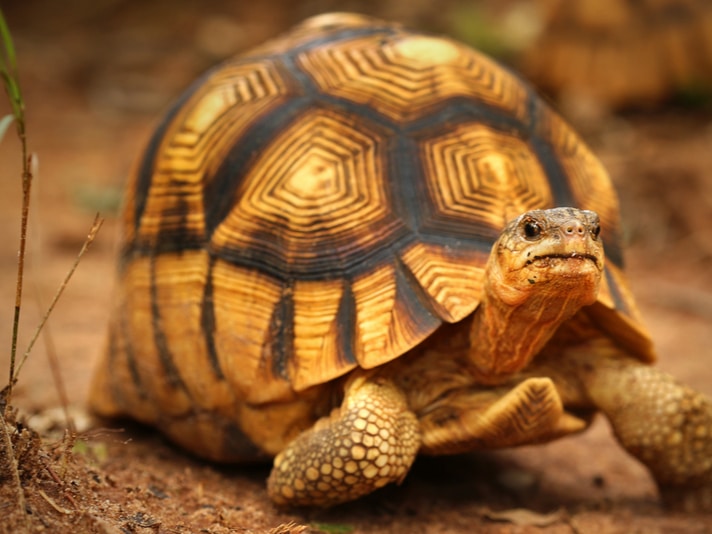Jersey’s Durell Conservation Trust in Europe has released 20 ploughshare tortoises (Astrochelys ynophora) on Madagascar in hopes of bolstering their p
Jersey’s Durell Conservation Trust in Europe has released 20 ploughshare tortoises (Astrochelys ynophora) on Madagascar in hopes of bolstering their population numbers on the island. The 20 captive bred tortoises joins 80 ploughshare tortoises that have already been released on the biodiversity hotspot. According to the BBC, the Durrell Conservation Trust’s Richard Lewis, program director, said that when the trust first proposed releasing ploughshare tortoises back onto the island experts said it couldn’t be done successfully.
Read More
Thai Smugglers Captured With An Estimated 14 Percent Of Ploughshare Tortoises Population
Rescued Ploughshare Tortoises To Kickstart Breeding Program In Europe
“For me personally this was the fruition of ten years’ hard work, Lewis said. ”We had to make the rule book ourselves, and to date this release is still one of the few successful tortoise reintroduction projects in the world.” The trust, which launched a captive breeding program for the tortoises in 1986, believes that there are just 400 ploughshare tortoises on Madagascar. Other estimates put the population at between 440 and 770 tortoises. Poachers for the illegal pet trade have drastically reduced their numbers.
The tortoises are listed as critically endangered by the IUCN with the threats being cattle grazing whereby fires are started to clear plots of land for cattle, and the pet trade. In January 2013, 54 juvenile ploughshare tortoises were confiscated and two people arrested by authorities at Suvarnabhumi International Airport in Thailand.
The ploughshare tortoise grows to about 17-20 inches in carapace length and can weigh around more than 20 pounds. They are also known as the angonoka tortoise, Madagascar tortoise, or Madagascar angulated tortoise. To discourage poaching, the Durrell Conservation Trust has been marking the shells with identifying marks, which makes them less desirable to poachers and those who collect them.
John B. Virata keeps a western hognose snake, a ball python, two corn snakes, a kingsnake, and two leopard geckos. His first snake, a California kingsnake, was purchased at the Pet Place in Westminster, CA for $5. His first pet reptile was a green anole that arrived in a small box via mail order. Follow him on Twitter @johnvirata



